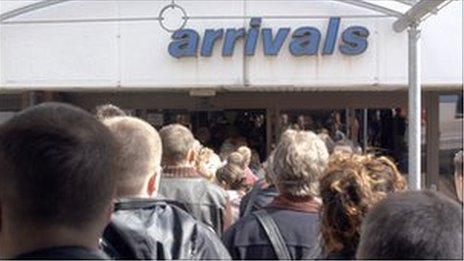Romanian and Bulgarian immigrant impact 'modest'
- Published
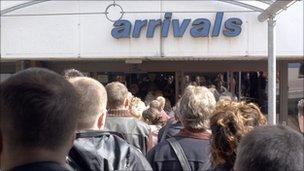
Restrictions on Romanians and Bulgarians coming to the UK will be lifted this year
Romanian and Bulgarian migration to the UK will hit schools but have a lesser impact on housing, a report has said.
However, it remains uncertain how many people will come to the UK when restrictions are lifted at the end of the year, said the National Institute of Economic and Social Research.
Bulgaria and Romania joined the EU in 2007 but faced some restrictions on the kind of jobs they could take.
Pressure group Migration Watch UK called the report a "whitewash".
Temporary stays
According to a British Labour Force sample survey, there are currently 26,000 Bulgarians and 80,000 Romanians living in the UK, but the actual numbers could be larger, according to the report.
There was no evidence to support a public perception that migration from Romania and Bulgaria would put pressure on social housing, the NIESR report, external said.
The NIESR did not offer any estimates on migrants as it was not asked to by the British Embassy in Bucharest, the Romanian capital, which commissioned and funded the research.
Instead it looked at where migrants had already gone and their characteristics.
"They are young, they tend to be on their own, and they make limited demands on services," NIESR researcher Heather Rolfe told BBC Radio 4's Today programme.
She said the researchers examined the likely impact on services if Romanians and Bulgarians were to come.
"There is no need to panic," she concluded.
The report said the impact on services, including housing, education, welfare and health, is likely to be greater if Romanians and Bulgarians move to the UK longer-term.
And while evidence from local surveys showed that Romanians and Bulgarians were interested in coming to the UK, many were considering temporary stays rather than long-term moves.
The main reason for the "modest impact" is that the UK is not the only country that will be lifting restrictions at the end of the year, as France and Germany are also allowing more Romanians and Bulgarians in. Many migrants have also gone to Spain and Italy, the research said.
Romanian and Bulgarian migrants to the UK are likely to be low-skilled workers, employed in construction, catering, hospitality, and as carers or cleaners, the report added.
Studies covering Eastern European migrants found them to be less likely to claim benefits than other migrant groups or the general population, the report said, adding that of those who claim benefits now, the majority receive child benefits.
Country transfers
But there is a limited amount of evidence on the impact of migrants on the welfare system, the NIESR study said.
Communities Secretary Eric Pickles has previously said that ministers do not know how many Romanians and Bulgarians will come to the UK when restrictions are relaxed.
He also said he had no confidence in figures, published on his department's own website, predicting about 13,000 will arrive.
Sir Andrew Green, chairman of Migration Watch UK, which campaigns for tougher controls on immigration, said: "This report is a bucket of whitewash.
"In 60 pages it produces no estimate whatever of the likely future scale of Romanian and Bulgarian migration to the UK.
"It brushes aside any indication of an increase in migration from these countries whose workers are amongst the most mobile in the EU. Furthermore, it avoids tackling the key question of how many Romanian and Bulgarian migrants now in Spain and Italy might transfer to Britain."
Alp Mehmet, of Migration Watch UK, said its own research had estimated about 50,000 a year would arrive. Ms Rolfe dismissed that figure as "a stab in the dark".
'Attracting global talent'
Minister for Europe David Lidington welcomed the report as a contribution to the debate on migration.
"The report will help to shape this government's work to build an immigration system which works in the national interest - supporting the UK economy by continuing to attract the brightest and the best global talent at the same time as protecting our public services and ensuring our welfare system is not open to abuse," he said.
"Our tough new rules are already taking effect, with overall net migration falling by almost one-third since 2010."
The research included a review of data and of research literature from the UK, Romania and Bulgaria.
- Published14 May 2014
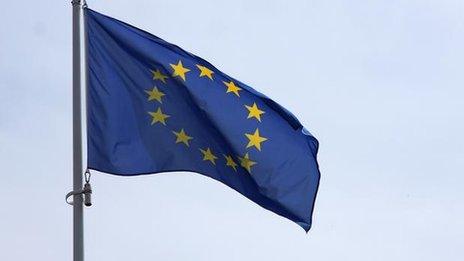
- Published19 March 2013
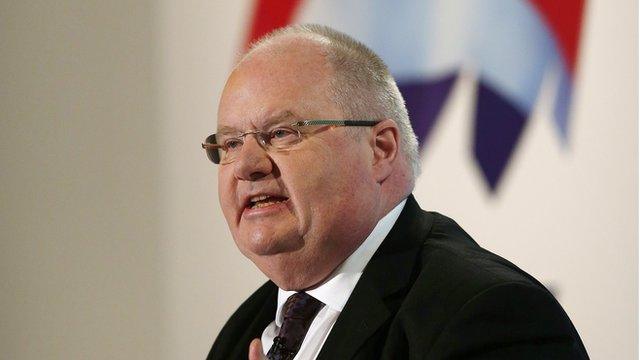
- Published25 February 2013
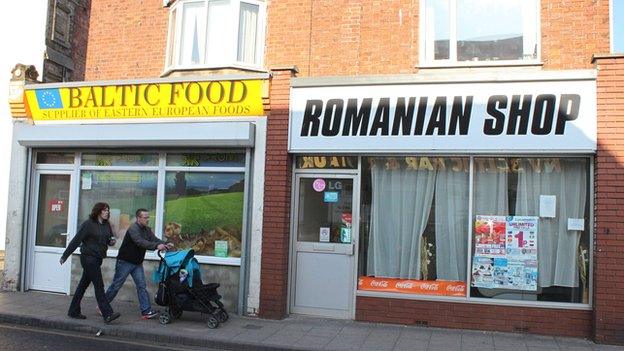
- Published17 January 2013
